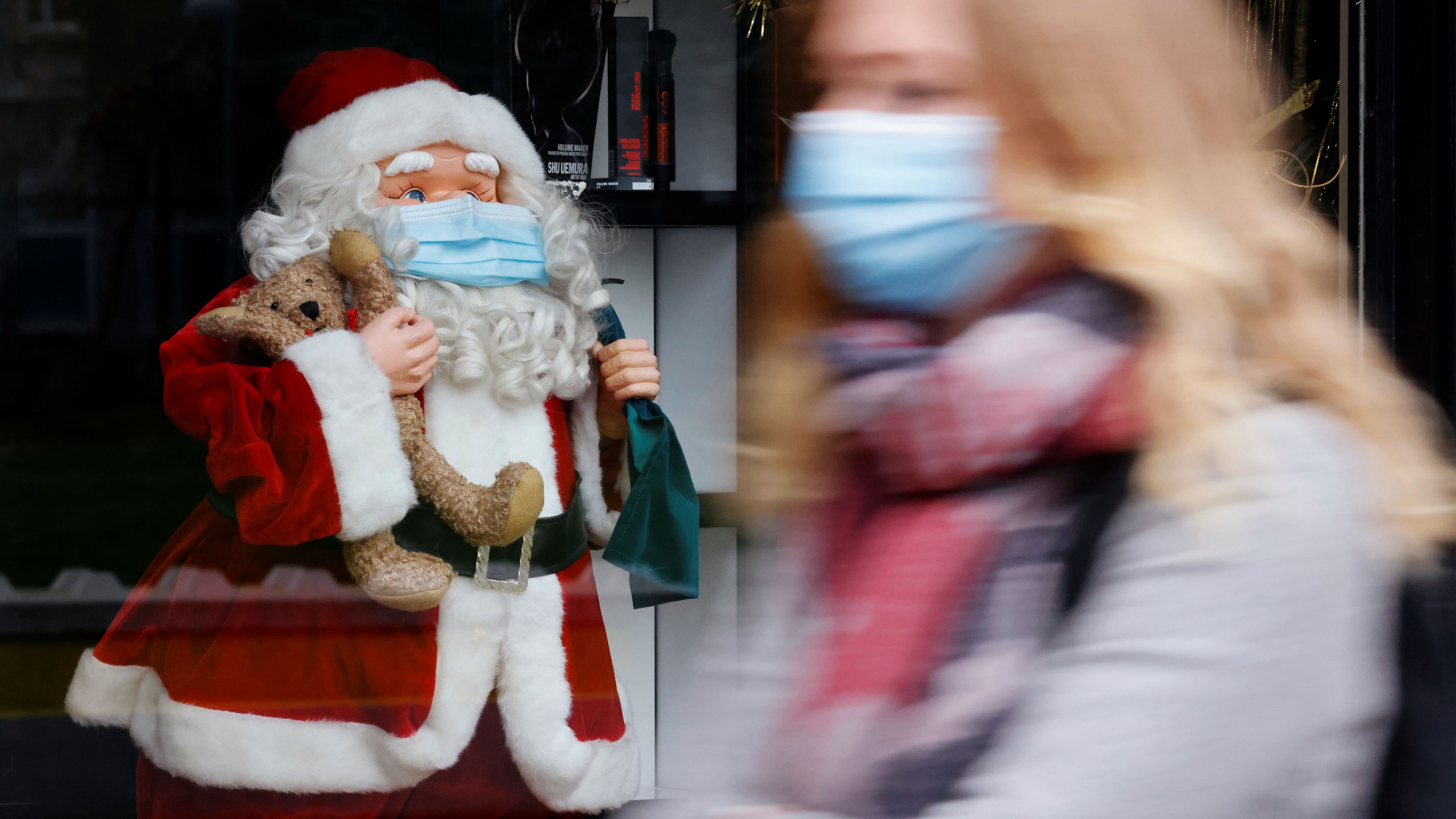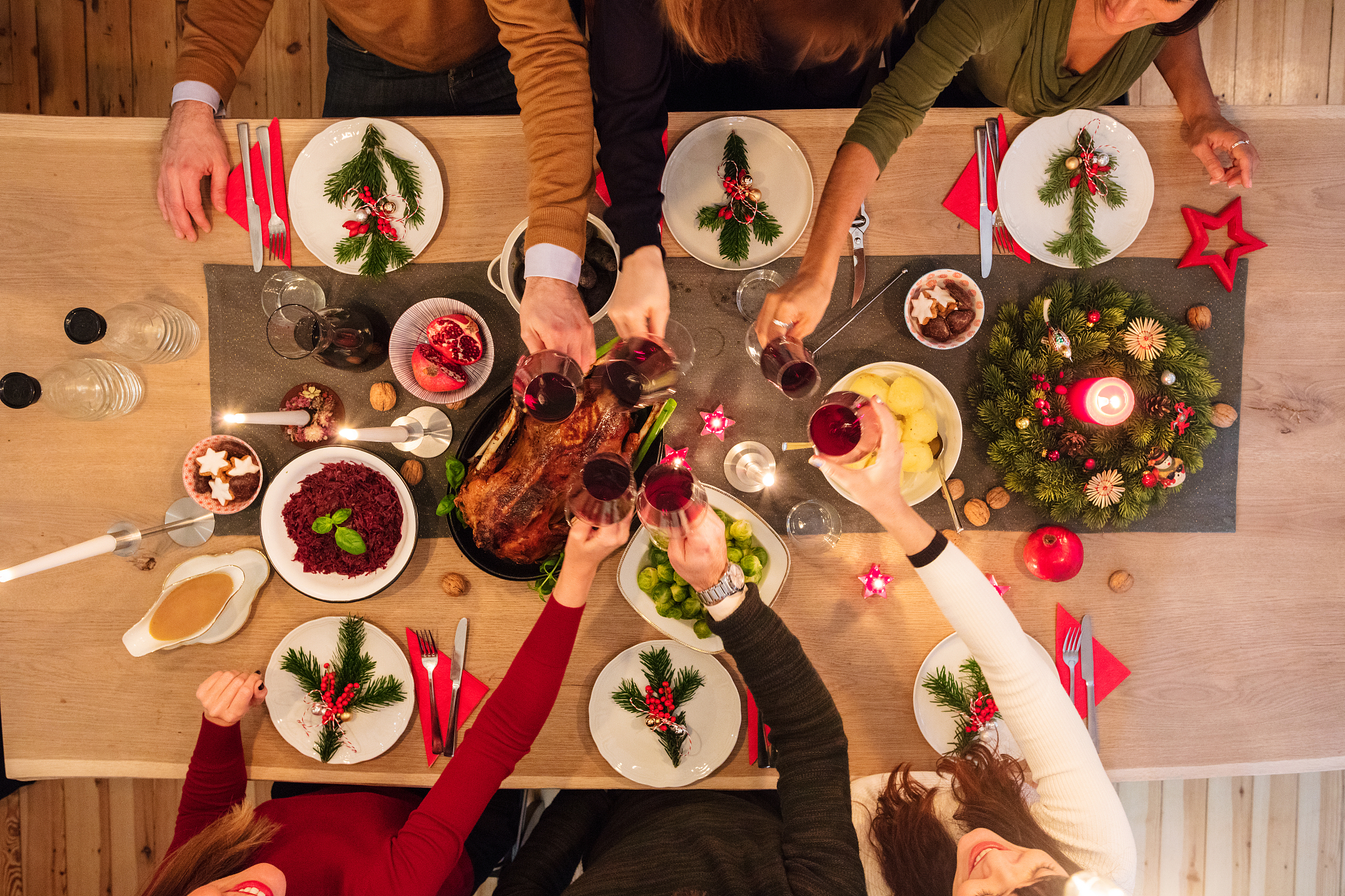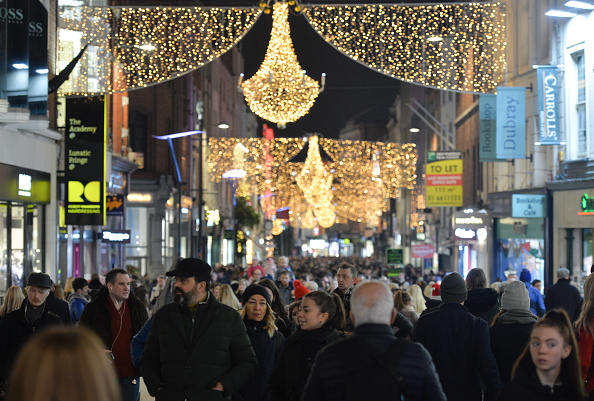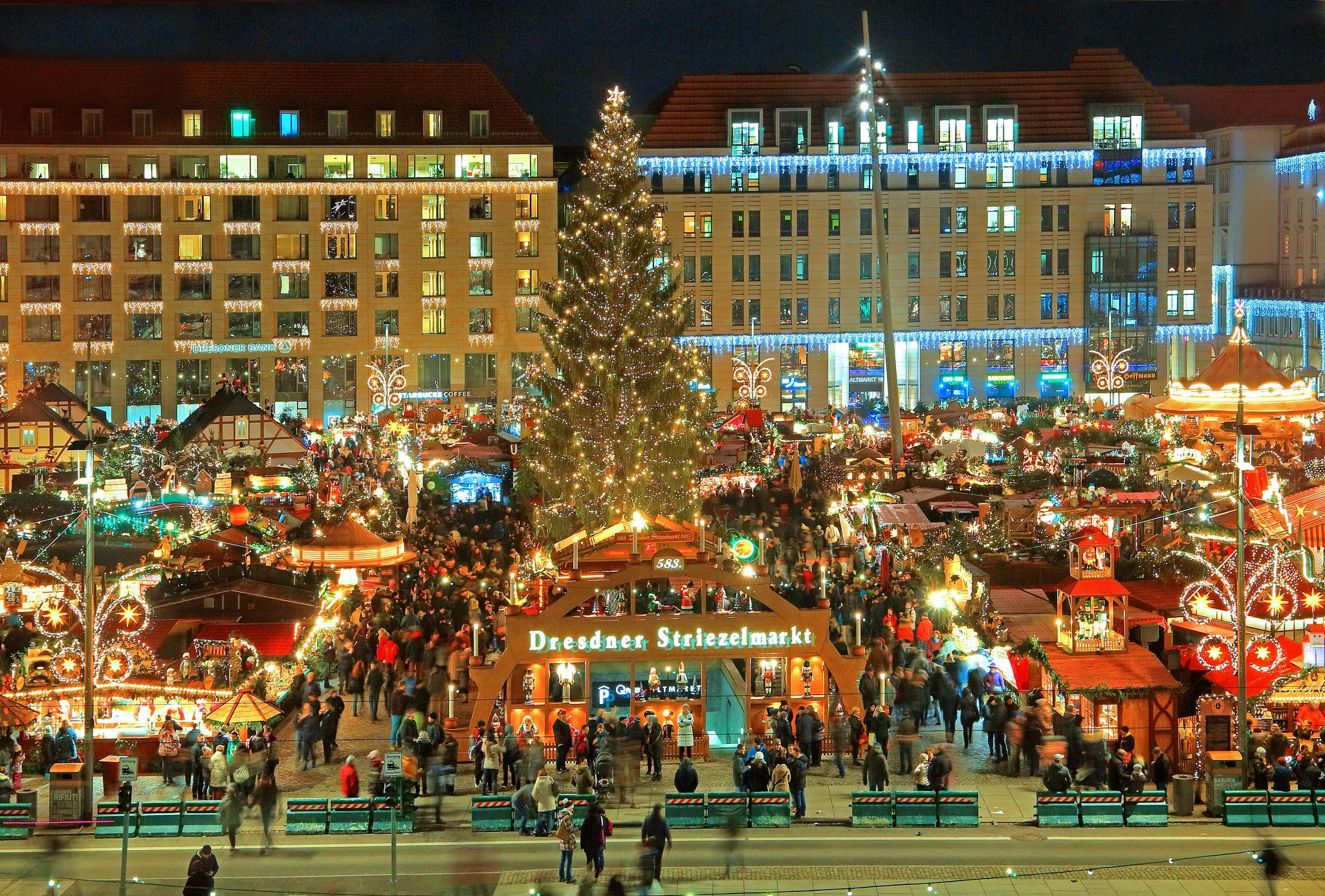
A woman walks past a window display with Father Christmas wearing a protective mask during the second COVID-19 national lockdown in Lille, France, November 30, 2020. /Reuters
A woman walks past a window display with Father Christmas wearing a protective mask during the second COVID-19 national lockdown in Lille, France, November 30, 2020. /Reuters
In many European countries, Christmas is the most important holiday of the year, when families come together, shops are packed with crowds and parties and events follow each other in quick succession.
But with a second wave of COVID-19 gripping the continent and case numbers recently hitting new records, governments have been scrambling to balance safety measures with people's wishes to celebrate as normal. So what's in store this year?
Bubbles and curfews
One thing has become clear: this year will not be a normal Christmas. But as one French minister put it, "we cannot tell people there won't be a Christmas, that would be untenable."
As a result, governments have been cobbling together compromise solutions.
French President Emmanuel Macron announced last week that strict lockdown measures imposed after a recent spike in COVID-19 could be relaxed if the number of new cases dropped below 5,000 by December 15. People would be allowed to travel again and visit their families for Christmas (current lockdown measures only allow essential travel), but no large gatherings would be permitted. A nightly curfew from 9 p.m. to 7 a.m. would not apply to the evening of December 24.
In Germany, get-togethers with a maximum of 10 people, not including children, will be permitted from December 23 to January 1. Until then however, only two households and five persons at most will be able to meet.
In the UK, three households will be allowed to form a "temporary Christmas bubble" from December 23 to 27, and travel restrictions will be eased during that period. No social distancing will need to be observed within bubbles.

Ireland's chief medical officer, on the other hand, has advised Irish nationals living abroad not to travel home for the holidays, saying it would be deemed non-essential travel.
Italy, still reeling from its horrific death toll in the spring when it became the first European country to impose a lockdown, also remains cautious. "Parties, celebrations, kisses and hugs will not be possible," Prime Minister Giuseppe Conte warned. "We need to prepare ourselves for a more sober Christmas." The current nationwide 10 p.m. curfew might be extended to midnight or even 1 a.m. on Christmas eve but it is still unclear how much travel will be allowed. Christmas dinners could be limited to five or six people.
Neighboring Austria is taking a different approach and will begin mass testing this week "to ensure that Christmas celebrations are as safe as possible," as Chancellor Sebastian Kurz put it.
Authorities in Switzerland, meanwhile, have urged people to take precautions but refrained from imposing restrictions, advising people to maintain social distancing, to celebrate outdoors or in large rooms to avoid crowding, and to voluntarily quarantine for 2-3 weeks before visiting family to prevent contagion.
A different type of shopping stress
Beyond family gatherings, Christmas sparks a shopping frenzy in the month of December, when many businesses make their biggest sales.
Fears that shops in France would remain closed throughout the holidays proved unfounded, but COVID-related measures mean Christmas shopping this year will be even more stressful than usual.
Shops in France and Germany must cap the number of customers based on their size. Masks and social distancing, including while queuing, are a must.
In Norway, although less badly hit by COVID-19, the Institute of Public Health has advised people to shop early and during less busy times and recommended that people at risk buy online or let others do their shopping for them. Shops have also been asked to consider extending opening times and offering home delivery.

Crowds of Christmas shoppers are seen on Grafton Street, Dublin, Ireland, December 21, 2019. /Getty
Crowds of Christmas shoppers are seen on Grafton Street, Dublin, Ireland, December 21, 2019. /Getty
In Belgium, non-essential shops are reopening on Tuesday but shoppers may only spend 30 minutes in a store and must shop alone. The reopening does not mean a return to "shopping for fun," Prime Minister Alexander De Croo said.
The UK meanwhile has said that after the lockdown is lifted on Wednesday, shops will be allowed to stay open 24 hours per day from Monday to Saturday throughout December, if they so choose.
Restrictions in the hospitality sector have also hampered many people's plans at a time when companies usually organize office parties, and friends meet for a drink or a meal before going away for Christmas.
In Germany, France and Belgium, all restaurants, bars and cafes are staying closed through the holidays, although takeaway and delivery services are allowed. Some parts of Switzerland will allow restaurants to reopen on December 10, while in the UK, a tier system will decide who can reopen and who must stay shut.
Traditional events cancelled
But perhaps the clearest sign that this year will be a different kind of celebration is the number of Christmas markets that have been cancelled or postponed. A beloved tradition in central Europe, where revelers feast on seasonal treats and mulled wine while browsing for trinkets and presents, the markets have fallen victim to bans on large gatherings and other measures to contain the pandemic.
Some of the biggest and most popular Christmas markets – Strasbourg in France, and Nuernberg, Cologne and Dresden's famed Striezelmarkt in Germany – have been scrapped. Only seven percent of all Christmas markets usually held in Germany will take place this year, according to a survey by the German trade association. In Italy, the government has banned them altogether. In Austria, where markets traditionally open in mid-November, huts have been set up but are still waiting for the country's lockdown to be lifted so that they can open.

File picture of the traditional Striezelmarkt in Dresden, Germany, which has been cancelled this year. /VCG
File picture of the traditional Striezelmarkt in Dresden, Germany, which has been cancelled this year. /VCG
Churchgoers in France, Italy, the UK and Ireland however will be able to go to Christmas mass, another cherished tradition, although there will be a cap on the number of people allowed.
And in England, authorities have said Christmas caroling and school Nativity plays will be allowed if precautions are taken while singing. Switzerland's public health office on the other hand has warned that "singing or playing a wind instrument can increase the risk of contamination. Listen instead to recorded Christmas songs."
Innovating Christmas
Clever minds have nevertheless found a way to make the best out of their situation and provide new services.
Toy shops in France, while in lockdown, began taking orders online or by phone and offering pick-up or delivery services. Some German towns have set up drive-through Christmas markets. And others, like Vienna's main Christkindlmarkt, have gone online, allowing shoppers to order directly from merchants until the market can actually open.
Meanwhile, with many theaters in the UK remaining closed, stage companies are planning drive-in Christmas pantomime performances in car parks, modeled after drive-in cinemas.
As the pandemic situation remains fluid, rules will likely keep being amended in the run-up to December 24. Spain's central and regional governments are still trying to agree on a joint plan for Christmas. Italy and Austria are set to announce new rules this week, while the Dutch government said it would do so next week.
Europe had spikes in COVID-19 cases this autumn unlike anything it saw in the spring. Strict lockdowns helped bring these numbers down but over the past 14 days, France, Germany and the UK still reported between 240,000-250,000 cases each, while Italy had over 406,000, according to the European Center for Disease Prevention and Control (ECDC).
Businesses and the population may be disgruntled about this year's Christmas restrictions but Italy's Prime Minister Conte warned: "A week of wild socializing would mean paying with a sudden spike in January in terms of deaths and pressure on intensive care. We can't afford that."

